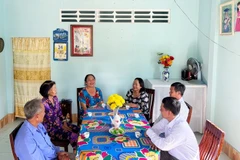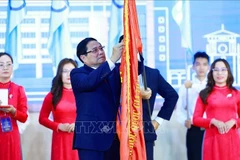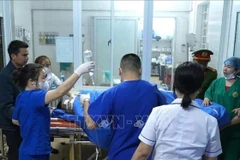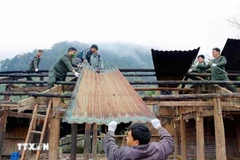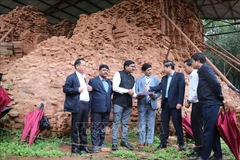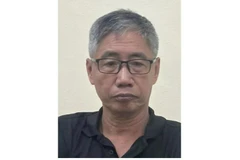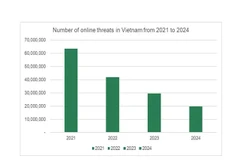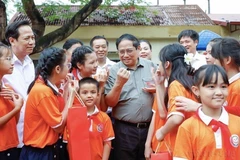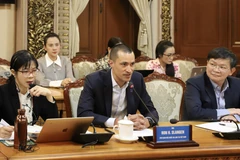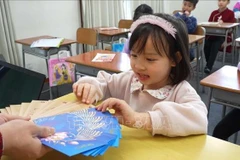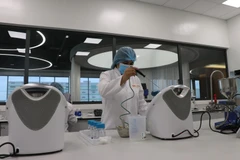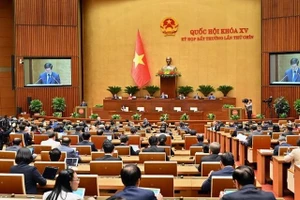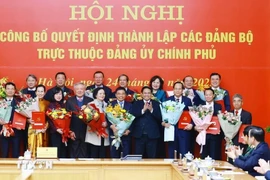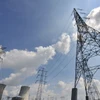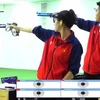The event took place on the occasion of 50 years since thesigning of the Paris Peace Accords (January 27, 1973) and the 48th anniversary of the Liberation of the South and National Reunification Day (April30, 1975). It was held by the National Archives Centre No 3, the liaison board ofwar veterans at Camp Davis, and the Friends of Vietnam Heritage.
On January27, 1973, after nearly five years of negotiations, the Paris Agreement on Ending the War and Restoring Peace in Vietnam (ParisPeace Accords) was signed.
Consistingof nine chapters with 23 articles, its main content included that the US andother countries pledge to respect the independence, united sovereignty, and territorialintegrity of Vietnam. The US would completely end its invasive war, military engagement, and interference in the internal affairs of South Vietnam whilerespecting the right to self-determination and guaranteeing the rights tofreedom and democracy of the people in South Vietnam.
However, to ensure the accords was implemented seriously andfully, Article 16 of this agreement stated that the four parties – the DemocraticRepublic of Vietnam, the Provisional Revolutionary Government of the Republicof South Vietnam, the US, and the Republic of Vietnam – would immediately sendrepresentatives to set up a four-party Joint Military Commission.
The JointMilitary Commission was tasked with ensuring the parties’ coordination ofactions to carry out the military-related articles in the agreement. The Vietnameseside – the Democratic Republic of Vietnam and the Provisional Revolutionary Governmentof the Republic of South Vietnam – set up two military delegations comprisinggenerals, officers, cadres, and outstanding soldiers of the military, publicsecurity, and diplomatic forces, along with representatives of the press andsome agencies engaging in the diplomatic and military struggles for the implementation of the accords.
Camp Davis, an abandoned military camp of the US army locatednear Tan Son Nhat Airport to the southwest (now in ward 4 of Tan Binh districtof Ho Chi Minh City), was chosen to house the headquarters of the liaison boardof Camp Davis and the two military delegations of Vietnam.
To isolatethe two Vietnamese delegations, the US-backed Saigon administration surroundedCamp Davis with layers of barbed wire. It also erected 13 watch towers outside,pointed guns at the camp around the clock, and conducted numerous threateningactivities to cause pressure on the two delegations.
At thediscussion, witnesses to history, including Col. Dao Chi Cong (an officer forexternal affairs at the office of the military delegation of the ProvisionalRevolutionary Government of the Republic of South Vietnam) and Col. Dinh QuocKy (a liaison officer of the delegation), shared many stories about the two delegations’clever and brave struggle against the Saigon administration and the US as soonas the delegations set foot at Camp Davis.
They said that the strong and clever struggle bythe two Vietnamese delegations helped promote the release of military andcivilian prisoners of the parties concerned who were arrested during wartime andforced the militaries of the US and its allies to completely withdraw from theSouth within 60 days – the most important factor that changed the correlationof forces on the battlefield in a way benefiting the Vietnamese revolution andcreated the decisive turning point and the main condition for the liberation ofthe South and the national reunification in the spring of 1975.
Also atthe event, witnesses and families of the persons joining the Vietnamesedelegations at Camp Davis presented many valuable keepsakes related to CampDavis to the National Archives Centre No 3./.







